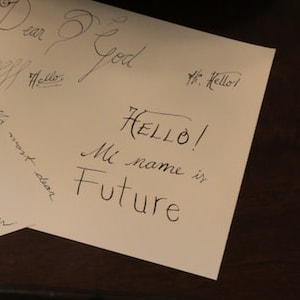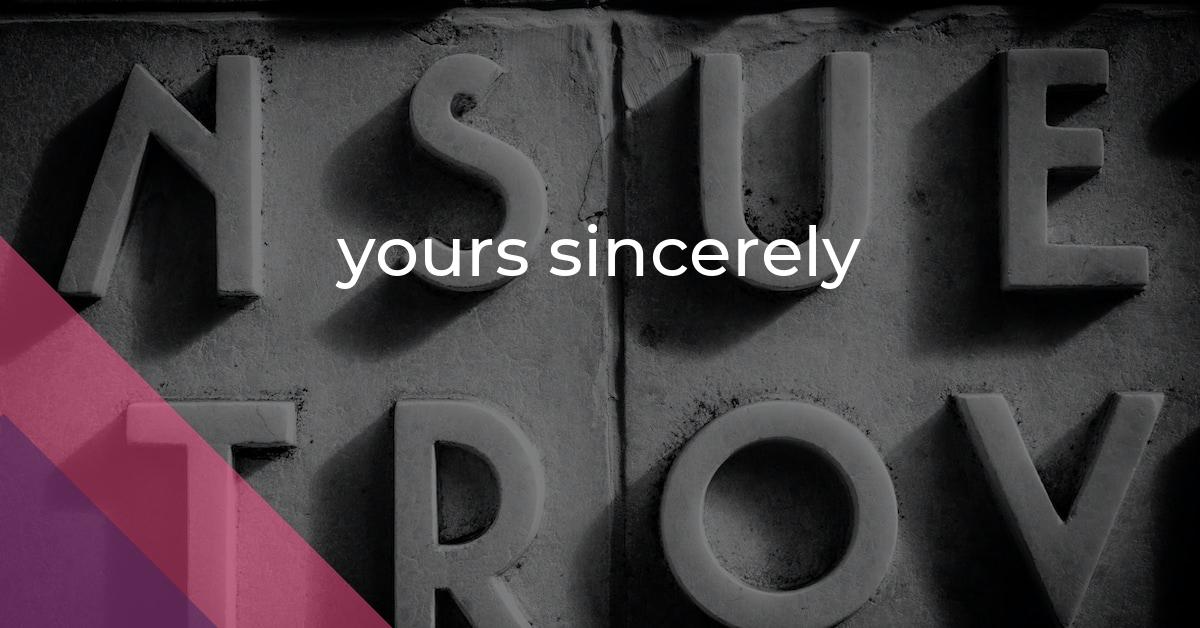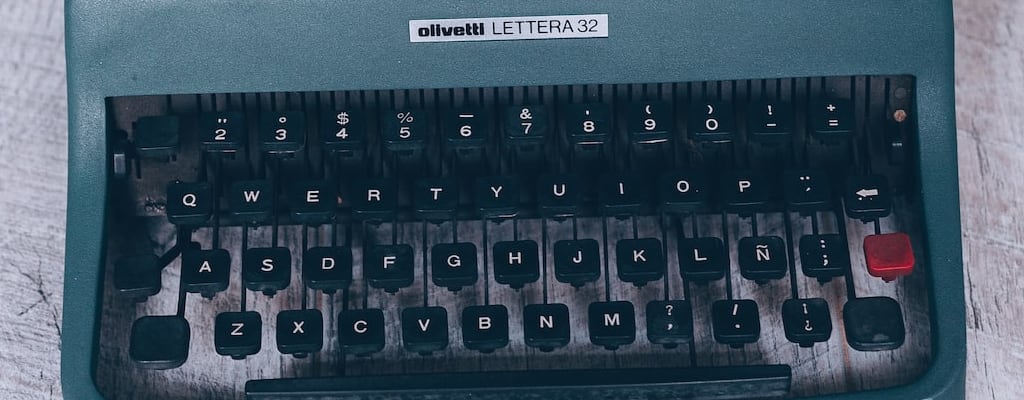yours sincerely: Idiom Meaning and Origin
What does ‘yours sincerely’ mean?
The idiom "yours sincerely" is used to close a formal letter or email in a polite and respectful manner.

Idiom Explorer
The idiom "yours truly" is a way to sign off or refer to oneself in a formal or sincere manner, often used in letters or emails. It signifies authenticity and personal connection.
The idiom "yours trulies" is a plural form of the phrase "yours truly," which is a way to sign off a letter or message in a personal and sincere manner.
The idiom "you man" is a slang phrase used to address someone, especially a close friend or companion. It is an informal way to refer to someone in a friendly or casual manner.
The idiom "you knows it" is an informal way of affirming that one is aware of something or agrees with a statement. It is often used to show confidence or enthusiasm.
The idiom "wouldn't you say" is often used to seek agreement or confirmation from others about one's statement or opinion.
The idiom "with all due respect" is used to soften or politely disagree with someone's opinion. It is often used before expressing a differing viewpoint or criticism, in order to show politeness and avoid being confrontational.
The idiom "warm regards" is a polite and friendly way to express one's good wishes or greetings to someone. It emphasizes a genuine sense of warmth and sincerity in the interaction.
The idiom "warmest regards" is used to express a very sincere and affectionate farewell or closing in a written communication.
The idiom "tip of the hat" is a gesture of recognition or acknowledgement usually used to show respect or appreciation towards someone or something.
The idiom "thanks a bunch" is used to sarcastically or jokingly express gratitude for something that someone does not appreciate or find helpful.
The Unspoken Conviction
yours truly is another idiomatic expression that is often used as a valediction in formal letter writing. Similar to "yours sincerely," it is used to convey a polite and respectful closing in written correspondence. The phrase is commonly used when the writer is addressing someone they do not know personally or when they want to adopt a more formal tone. "Yours truly" has become an accepted and traditional way to end a letter, particularly in American English.
yours trulies is a term that is sometimes used as a playful variation of "yours truly." It is used in a lighthearted or humorous context to convey a sense of familiarity or friendly affection towards the recipient. While not as widely used or formal as "yours sincerely," "yours trulies" adds a touch of personality to the closing statement, making it more personal and engaging.
warmest regards is another valediction that is commonly used in formal letter writing. It is an expression used to convey warmth, friendliness, and good wishes towards the recipient. "Warmest regards" is often used when the writer has a closer or more personal relationship with the recipient, such as a friend or colleague. This valediction adds a touch of sincerity and genuine warmth to the closing statement, making it more personal and heartfelt.
kind regards is a valediction that is similar to "warmest regards" in its intention to convey kindness, friendliness, and good wishes to the recipient. It is often used in more formal or professional contexts, such as business correspondence or when addressing someone in a position of authority. "Kind regards" is a polite and respectful way to close a letter, while still maintaining a level of warmth and goodwill towards the recipient.
best regards is a valediction that is commonly used in formal and professional letter writing. It is a versatile closing that can be used in a variety of contexts, from business correspondence to personal letters. "Best regards" conveys a sense of goodwill, respect, and sincerity towards the recipient. It is a friendly and warm way to end a letter, while still maintaining a level of professionalism and formality.
"yours sincerely" is an idiomatic expression that has stood the test of time in formal letter writing. It is a widely accepted and respected valediction, particularly in British English. Other related idioms, such as "yours truly," "yours trulies," "warmest regards," "kind regards," and "best regards," provide variations in tone and formality to suit different contexts and relationships with the recipient. These idiomatic expressions add a personal touch and convey warmth, authenticity, and respect in written correspondence, making them valuable tools for effective communication.
Example usage
Examples of how the idiom "yours sincerely" can be used in a sentence:
1. I look forward to discussing this further in our meeting. Yours sincerely, John Smith.
2. Thank you for considering my application. Yours sincerely, Sarah Johnson.
3. I appreciate your prompt response to my query. Yours sincerely, Mark Davis.
More "Greeting" idioms



